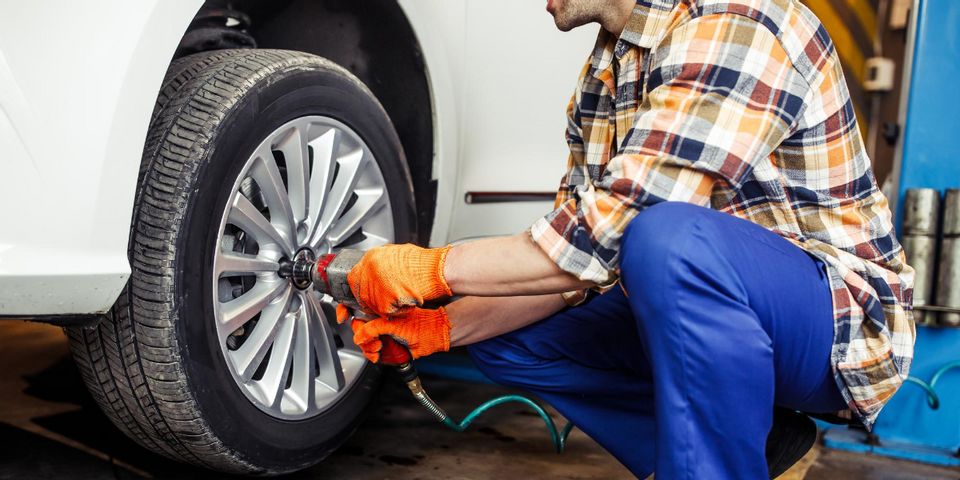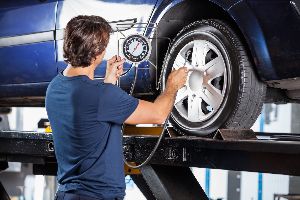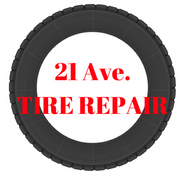
By maintaining the proper air pressure in tires, drivers have more control over the car and therefore are safer on the road. Under or overinflated tires make it harder to steer the vehicle and will provide decreased traction in slippery conditions. Here’s a closer look at why drivers need to pay attention to tire pressure and how to check it.
What Is Tire Pressure?
Tire pressure supports the total weight of a vehicle and influences factors such as handling, traction, directional stability, and comfort. The recommended pressure levels are designated by the vehicle's manufacturer and producer. The pressure amounts are measured by the psi (pound per square), which is determined by the vehicle’s total size and weight, recommended tire size, and how much weight it can tow.
Why It's Important

Overinflated tires can lead to decreased directional stability, comfort while driving, and overall handling capability. Underinflated parts can impact directional stability, tire durability, and steering response, which are important when you need to make sudden breaks or maneuver the car quickly.
Additionally, driving with underinflated tires can increase the drag coefficient, or rolling resistance, leading to higher fuel usage. Moreover, this can lead to a blowout or even a car accident. Checking the pressure at least once a month, especially when temperatures drop in the fall and winter, can help drivers avoid these problems.
How to Check
Drivers can find the recommended psi for front and back tires in the car manual or on the driver’s door. You can check at home or at most gas stations. You could also have a technician perform a check for you.
To find the tire pressure, you’ll need a gauge. You can pick up a digital or conventional stick-type gauge at an auto parts dealer, a gas station, or a general retail store. When you’re ready, remove the end caps on the valve stems and adhere the gauge to the stem. Press down the gauge to get a psi reading. If the number matches guidelines, you’re set to drive. If it’s too high, push in the valve to release air to lower the psi. Conversely, fill your tire with air if the reading is too low. Check all tires, including your spare.
When you need reputable tire services, head to 21 Ave Tire Repair in Paterson, NJ. This premier repair and services company specializes in maintenance, such as treating balding and cracking treads. They also offer a vast selection of new and used tires, including luxury models, when you need a replacement. For more information, call them today at (973) 225-0923, or visit their website.
About the Business
Have a question? Ask the experts!
Send your question

